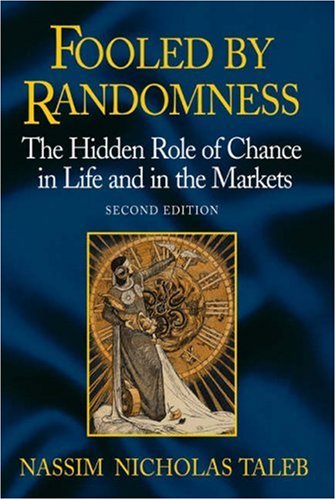Synopsis
Selected by Amazon.com and the Financial Times as one of the best business books of the year, Fooled by Randomness is an instant classic. It's uniqueness has drawn to it a wide following - from the New Yorker to the Pentagon. Already published in 14 languages, this new edition, expanded by over 80 pages, includes up-to-date advances from behavioral finance and cognitive science This book is about luck ? or more precisely how we perceive and deal with luck in life and business. It is already a landmark work and its title has entered our vocabulary. In its second edition, Fooled by Randomness is now a cornerstone for anyone interested in random outcomes. Set against the backdrop of the most conspicuous forum in which luck is mistaken for skill ? the world of trading ? Fooled by Randomness is a captivating insight into one of the least understood factors of all our lives. Writting in an entertaining and narrative style, the author succeeds in tackling three major intellectual issues: the problem of induction, the survivorship biases, and our genetic unfitness to the modern word. In this second edition, Taleb manages to use stories and anecdotes to illustrate our overestimation of causality and the heuristics that make us view the world as far more explainable than it actually is. But no one can replicate what is obtained by chance. Are we capable of distinguishing the fortunate charlatan from the genuine visionary? Must we always try to uncover nonexistent messages in random events? It may be impossible to guard ourselves against the vagaries of the Goddess Fortuna, but after reading Fooled by Randomness we can be a little better prepared.
About the Author
Nassim Nicholas Taleb is an essayist principally concerned with the problems of uncertainty and knowledge. Taleb?s interests lie at the intersection of philosophy,
mathematics, finance, literature, and cognitive science but he has stayed extremely
close to the ground thanks to an uninterrupted two-decade career as a mathematical
trader. Specializing in the risks of unpredicted rare events (?black swans?), he held senior trading positions in New York and London before founding Empirica LLC, a trading firm and risk research laboratory. Taleb is a fellow at the Courant Institute
of Mathematical Sciences of New York University where he has been teaching a
class on the failure of models since 1999. His degrees include an MBA from the Wharton School and a Ph.D. from the University of Paris Dauphine. The author?s ideas on skeptical empiricism have been covered by hundreds of articles around the world. Since childhood, Taleb has been obsessed with the defects of his own thinking. In addition to his scientific and literary interests, Taleb enjoys cafe
lounging and museum hopping.
"About this title" may belong to another edition of this title.
